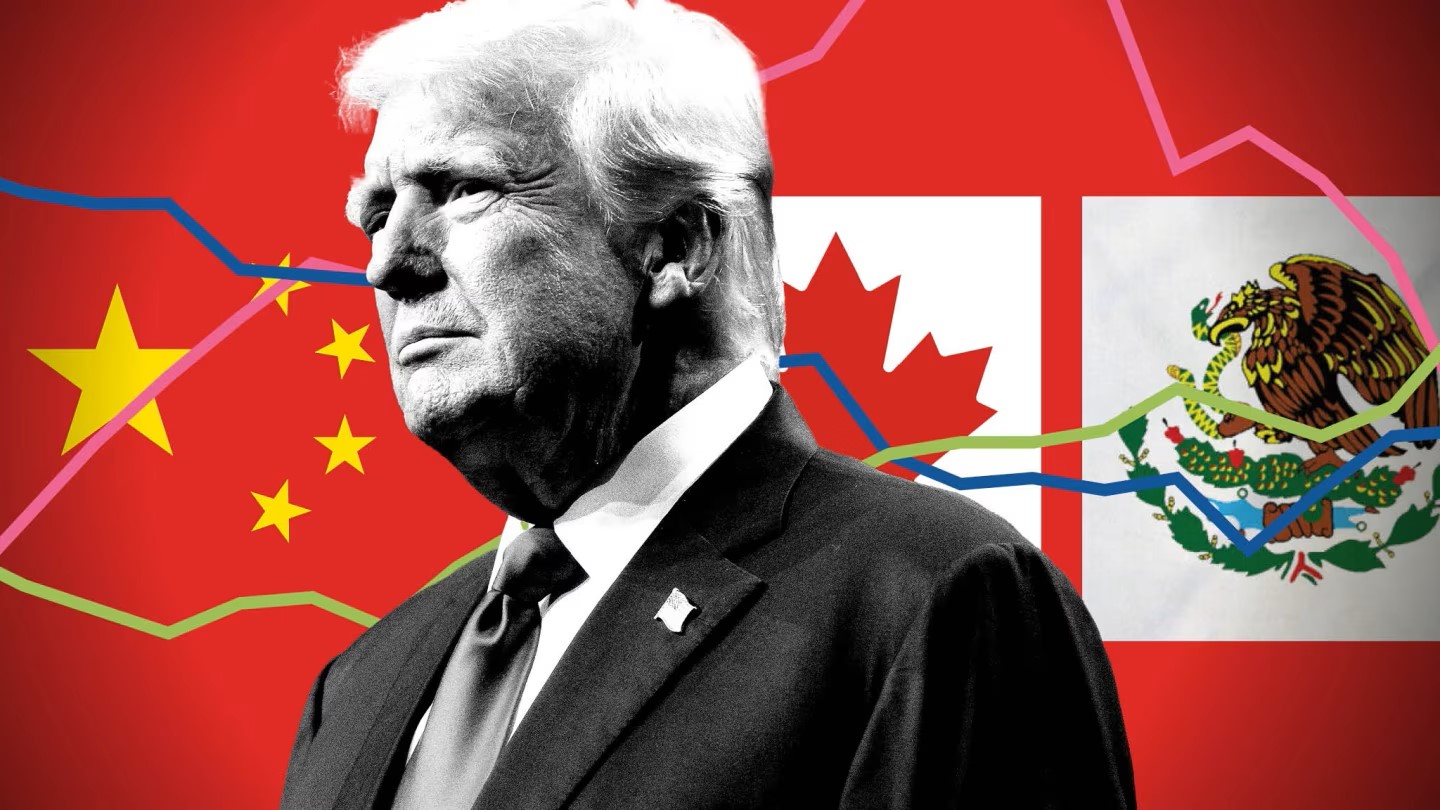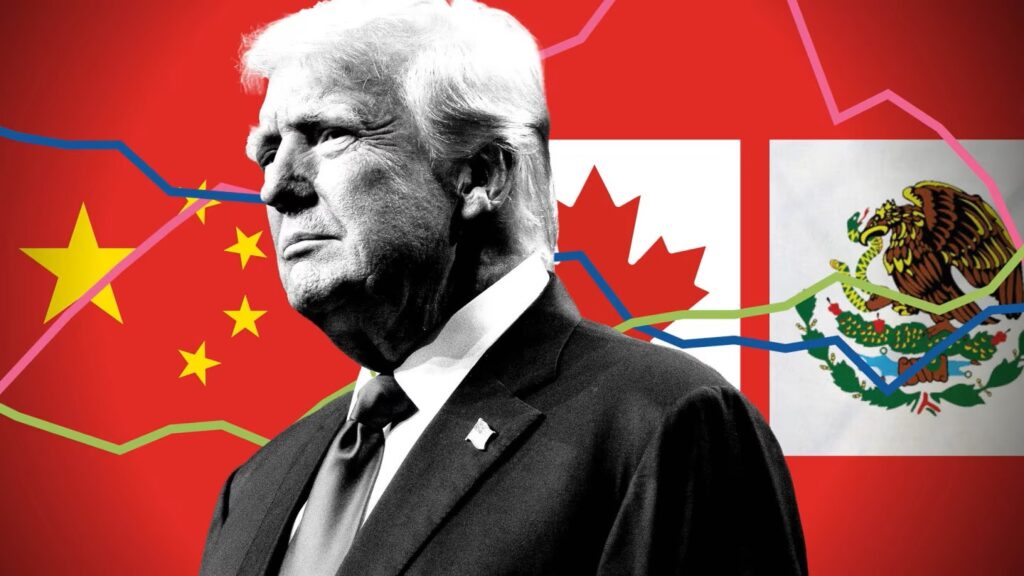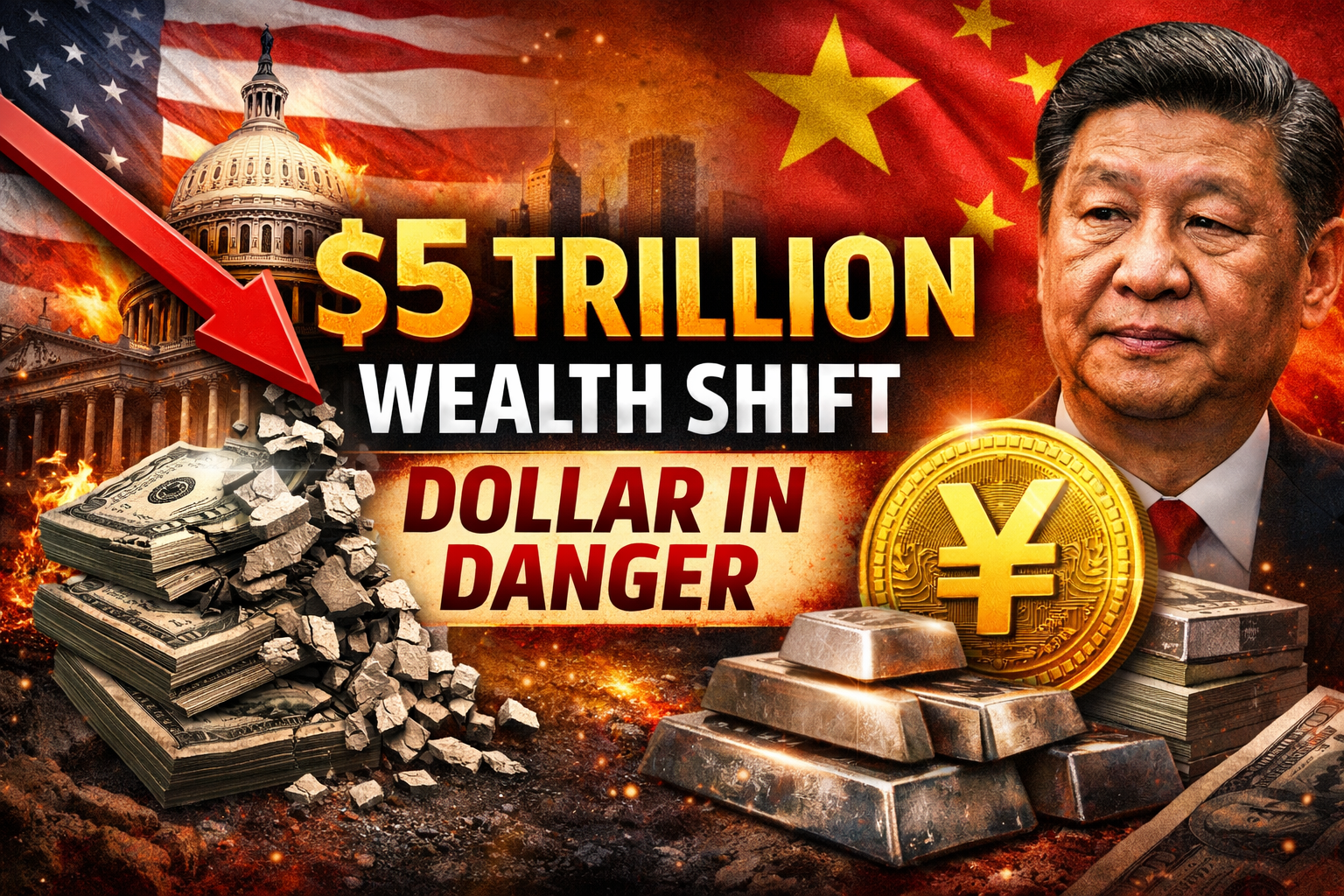

How Trump Tariffs is New War?
US Stock Market Plunges as Trump Announces Tariffs on Canada and Mexico
Stocks Take a Hit
The US stock market took a significant hit on Monday as President Donald Trump announced that tariffs on Canada and Mexico would be enforced within hours. The Dow Jones Industrial Average plummeted by nearly 650 points, erasing much of the market’s gains since Trump’s election. The S&P 500 also dropped 1.8% after Trump stated there was “no room left” for negotiations to reduce the tariffs, dashing hopes for a more flexible trade approach.
Also Read; “Tata Capital IPO 2024: Everything You Need to Know About
Why It Matters
Monday’s selloff has reduced the S&P 500’s post-election gains to just over 1%, down from a high of more than 6%. Investors had previously bet on Trump’s policies strengthening the economy, but growing trade tensions and weak economic indicators have heightened concerns about a slowdown. The Nasdaq composite also took a substantial hit, falling 2.6%.
Economic Warning Signs
The market decline coincided with broader concerns over economic growth in the US. A report from the Institute for Supply Management (ISM) indicated that manufacturing activity remained in expansion mode but was slowing more than economists had anticipated. The report also highlighted a contraction in new orders, while rising prices fueled worries about the impact of tariffs on businesses and consumers alike.
Timothy Fiore, who chairs ISM’s manufacturing survey committee, noted, “Demand has softened, production is stabilizing, and companies continue to reduce staffing levels as they navigate the effects of the administration’s new tariff policy.”
Also Read; शून्य निवेश; बिजनेस आइडिया और निष्पादन रणनीति रणनीति
Investor Reactions; How Trump Tariffs is New War?
Wall Street had expected Trump to use the threat of tariffs as a negotiation tool rather than immediately implementing them. The sudden decision rattled investors who were already wary of ongoing economic uncertainties.
“Markets were hoping for an 11th-hour deal to delay tariffs again, but that’s not happening this time,” said Jamie Cox, managing partner at Harris Financial Group. “Now, the market has to absorb this reality, and we’re seeing that reflected in the numbers.”
James St Aubin, chief investment officer at Ocean Park Asset Management, added, “This is part of an ongoing stream of disappointing economic data that is tempering the optimism we saw after fourth-quarter earnings.”
Major Stocks Impacted
Several key stocks saw steep declines. Nvidia dropped 8.8%, while Tesla slipped 2.8%. Kroger shares tumbled 3% following the resignation of its Chairman and CEO Rodney McMullen due to an internal investigation into his personal conduct.
Even cryptocurrency-related stocks were not immune. MicroStrategy, now rebranded as Strategy, fell 1.8%, while Coinbase saw a 4.6% drop despite Trump’s weekend announcement of a crypto strategic reserve initiative.
Global Market Response
Trump’s aggressive trade policies are having ripple effects globally. Chinese manufacturers reported an uptick in orders in February as companies rushed to buy goods before US tariffs increased. The 10% tariff on Chinese imports is set to rise to 20% on Tuesday, with additional restrictions eliminating the “de minimis” rule that previously exempted small-value imports.
Meanwhile, European markets outperformed their US counterparts. Germany’s DAX index surged 2.6%, and France’s CAC 40 climbed 1.1% following encouraging inflation data that raised expectations of a European Central Bank rate cut. Over in Hong Kong, bubble tea chain Mixue Bingcheng had an impressive stock market debut, surging 43% and giving the Hang Seng index a modest 0.3% boost.
What’s Next? How Trump Tariffs is New War?
Investors are now closely monitoring upcoming economic reports and potential signals from the Federal Reserve. The yield on the 10-year Treasury dropped to 4.16% from 4.24% after the ISM manufacturing report, reflecting growing concerns over economic growth. Falling Treasury yields typically provide support to stocks, but in this case, they are being driven by fears of a broader slowdown.
With inflationary pressures still a concern, the Federal Reserve has limited flexibility to cut interest rates to spur growth. While markets are currently pricing in at least two 25-basis-point rate cuts by year-end, changing economic conditions could prompt a reassessment of those expectations.



